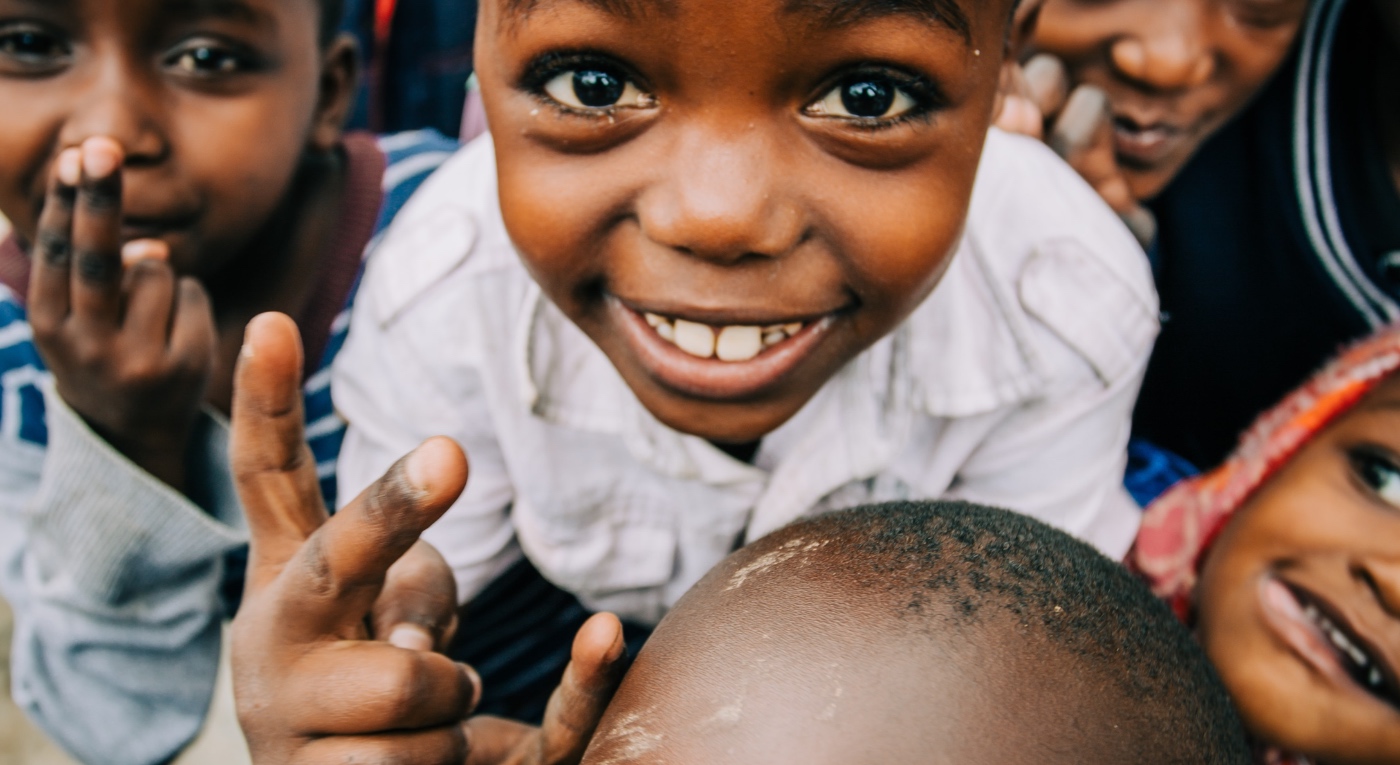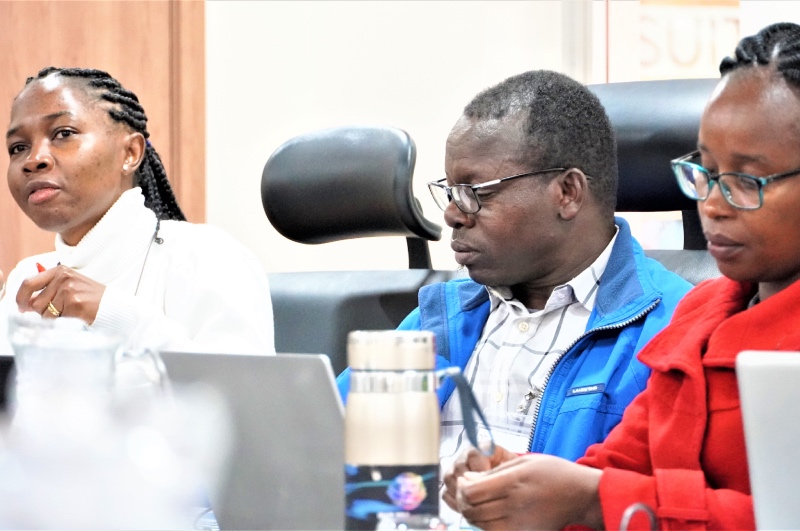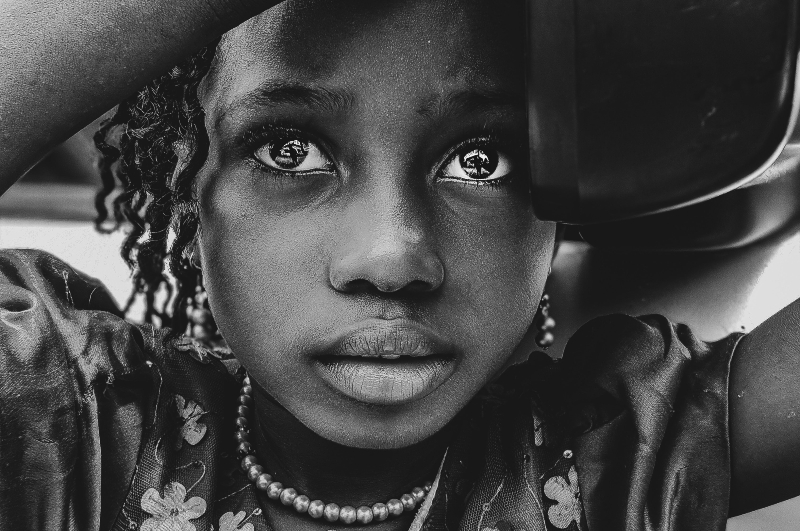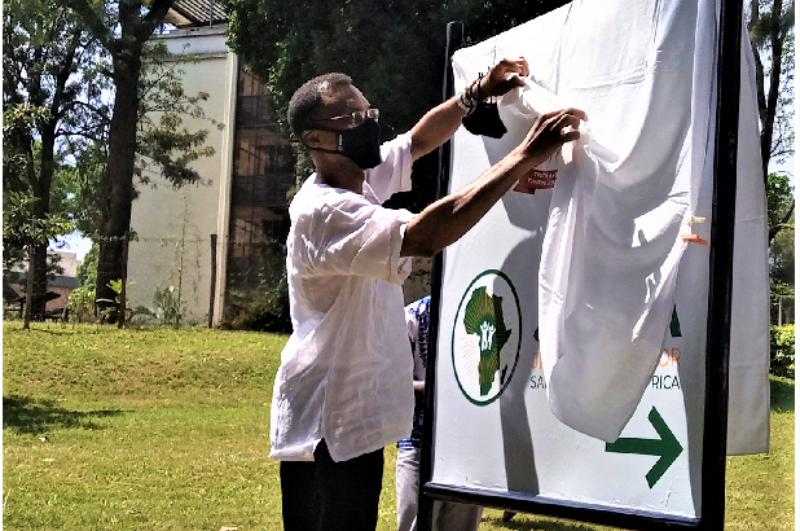



The Jesuit Conference of Africa and Madagascar (JCAM) promotes, within the communities, formation houses, ministries and governance of the Society, a consistent culture of protection and safety for Children, minors and vulnerable persons; that is, a normal, habitual way of living, relating, working, in which those whom we serve, particularly children and vulnerable persons, always feel respected, safe, and loved. JCAM commits to creating a culturally sensitive and contextually relevant safeguarding environment to ensure a generation free from abuse.
This JCAM Safeguarding Policy applies to concerns and allegations relating to JCAM employees, officials, volunteers, collaborators, consultants and partners on permanent and temporary engagement in the Secretariat. This Policy applies side by side with the local legislation except where the latter is inadequate. Concerns and allegations relating to persons not within the JCAM structure will be reported to and dealt with by the civil authorities as appropriate.
This Policy lays out the commitment of JCAM to create and sustain a safe environment for children and vulnerable adults and provides guidelines for ensuring effective action is taken on all concerns.
The POLICY in PDF {DOWNLOAD HERE}
STATEMENT OF COMMITMENT
The Jesuit Conference of Africa and Madagascar (JCAM) is committed to the promotion of a consistent culture of protection and well-being of children and vulnerable adults within all the communities, formation houses and works under its direction. Such a culture will always be one in which those whom JCAM welcomes in whatever context, particularly children, feel respected and safe.
This will be achieved through safe recruitment, regular training of all employees, officials, volunteers, collaborators, consultants, partners and members of the Society of Jesus, promoting observance of international, national and ecclesiastical policies for the protection of minors and ensuring effective response to all concerns and allegations. Everyone at JCAM has a role in creating this consistent culture of protection and all are encouraged to take the responsibility seriously.
A Code of Conduct is in place to ensure staff are properly guided (Appendix 1)
BACKGROUND
In his Motu Proprio, “Vos Estis Lux Mundi” (7 May 2019), Pope Francis declares that abuses of whatever kind committed against minors and vulnerable people inflict “physical, psychological and spiritual damage to the victims and harm the community of the faithful.” To ensure that such phenomena “never happen again, a continuous and profound conversion of hearts is needed, attested by concrete and effective actions that involve everyone in the Church, so that personal sanctity and moral commitment can contribute to promoting the full credibility of the Gospel message and the effectiveness of the Church’s mission.” Francis’ call echoes his previous declaration that “no effort must be spared to create a culture able to prevent such situations from happening, but also to prevent the possibility of their being covered up and perpetuated. The pain of the victims and their families is also our pain, and so it is urgent that we once more reaffirm our commitment to ensure the protection of minors and of vulnerable adults.” (“Letter to the People of God,” 20 August 2018).
Furthermore, the 36th General Congregation of the Society of Jesus (2016) mandated Father General Arturo Sosa and all Jesuits “to continue working with Major Superiors and Conferences to promote, within the communities and ministries of the Society, a consistent culture of protection and safety for minors, in keeping with the suggestions of the Congregation regarding formation, community life, ministries and governance.”
Father Sosa has defined a consistent culture of protection as “a normal, habitual way of living, relating, working, in which those whom we serve, particularly children, always feel respected, safe, and loved.” This understanding is in line with the wishes of Pope Francis to create a culture of care. In the words of Francis, “The Church loves all her children like a loving mother, but cares for all and protects with a special affection those who are smallest and defenseless.
This is the duty that Christ himself entrusted to the entire Christian community as a whole. Aware of this, the Church is especially vigilant in protecting children and vulnerable adults.”
In JCAM, we aim to rediscover cultural values and build on existing good practices to create and enhance a culture of care, protection and safeguarding. This vision aligns perfectly with the universal apostolic preferences of the Society of Jesus to guarantee “a healthy environment for children and young people and create conditions that allow all to develop their full potential as human beings.” The successful realization of this vision will depend on effective ongoing collaboration among Jesuits, collaborators and partners in mission.
GUIDING PRINCIPLES
Protection of children and vulnerable adults is the responsibility of all in public ministry. As such, JCAM will consistently take measures to ensure that protection is “a habitual way of life” for all its employees, officials, volunteers, collaborators, consultants and partners.
In developing this Policy JCAM is further informed by the obligation to protect the inherent dignity and rights of children as provided for in Article 3 of the Convention on the Rights of the Child (UNCRC), Canon Law and civil legislation.
JCAM subscribes to the principle that children and vulnerable adults have inherent rights to dignity, bodily integrity and protection and everyone has an obligation to ensure these rights are realized and protected.
The purpose of this Safeguarding Policy:
1. To protect children and vulnerable persons who receive our services. This includes the children of adults who use our services
2. To provide staff and volunteers with the overarching principles that guide our approach to protection of minors and vulnerable persons.
We recognise that:
1. The welfare of the child and vulnerable person is paramount
2. All children and vulnerable person, regardless of age, disability, gender, racial heritage, religious belief, sexual orientation or identity, have the right to equal protection from all types of harm or abuse
3. Working in partnership with children, young people, their parents, caregivers, and other agencies are committed to promoting young people's welfare.
We will seek to keep children and vulnerable persons safe by:
1. Valuing them, listening to and respecting them
2. Adopting child and vulnerable persons protection practices through procedures and a code of conduct for staff and volunteers
3. Providing effective management for staff and volunteers through supervision, support, and training
4. Recruiting staff and volunteers safely, ensuring all necessary checks are made
5. Sharing information about child and vulnerable persons protection and good practice with children, vulnerable persons, parents, staff, and volunteers
6. Sharing concerns with agencies who need to know, and involving parents, children and vulnerable persons appropriately
7. Reviewing our policy and good practice annually.
USEFUL LINKS:
The Jesuit Conference of Africa and Madagascar (JCAM) Safeguarding Policy is in English, and French. Find the French {annexes here}. To download, please review our terms of use and the privacy policy notice or e-mail us at
Procedures and Protocol of the Jesuits Conference of Africa and Madagascar on Safeguarding Children and Vulnerable Adults - 2023 {Download Here}
Policy on use of visual images in PDF {Download Here}
For the JCAM Safeguarding and Child Protection APP, please follow this link {Here}
1.“Minor” means: any person under the age of eighteen, or who is considered by law to be the equivalent of a minor;
2. “vulnerable person” means: any person in a state of infirmity, physical or mental deficiency, or deprivation of personal liberty which, in fact, even occasionally, limits their ability to understand or to want or otherwise resist the offence.
Related Articles





Select Payment Method
Pay by bank transfer
If you wish to make a donation by direct bank transfer please contact Fr Paul Hamill SJ treasurer@jesuits.africa. Fr Paul will get in touch with you about the best method of transfer for you and share account details with you. Donations can be one-off gifts or of any frequency; for example, you might wish to become a regular monthly donor of small amounts; that sort of reliable income can allow for very welcome forward planning in the development of the Society’s works in Africa and Madagascar.
Often it is easier to send a donation to an office within your own country and Fr Paul can advise on how that might be done. In some countries this kind of giving can also be recognised for tax relief and the necessary receipts will be issued.


